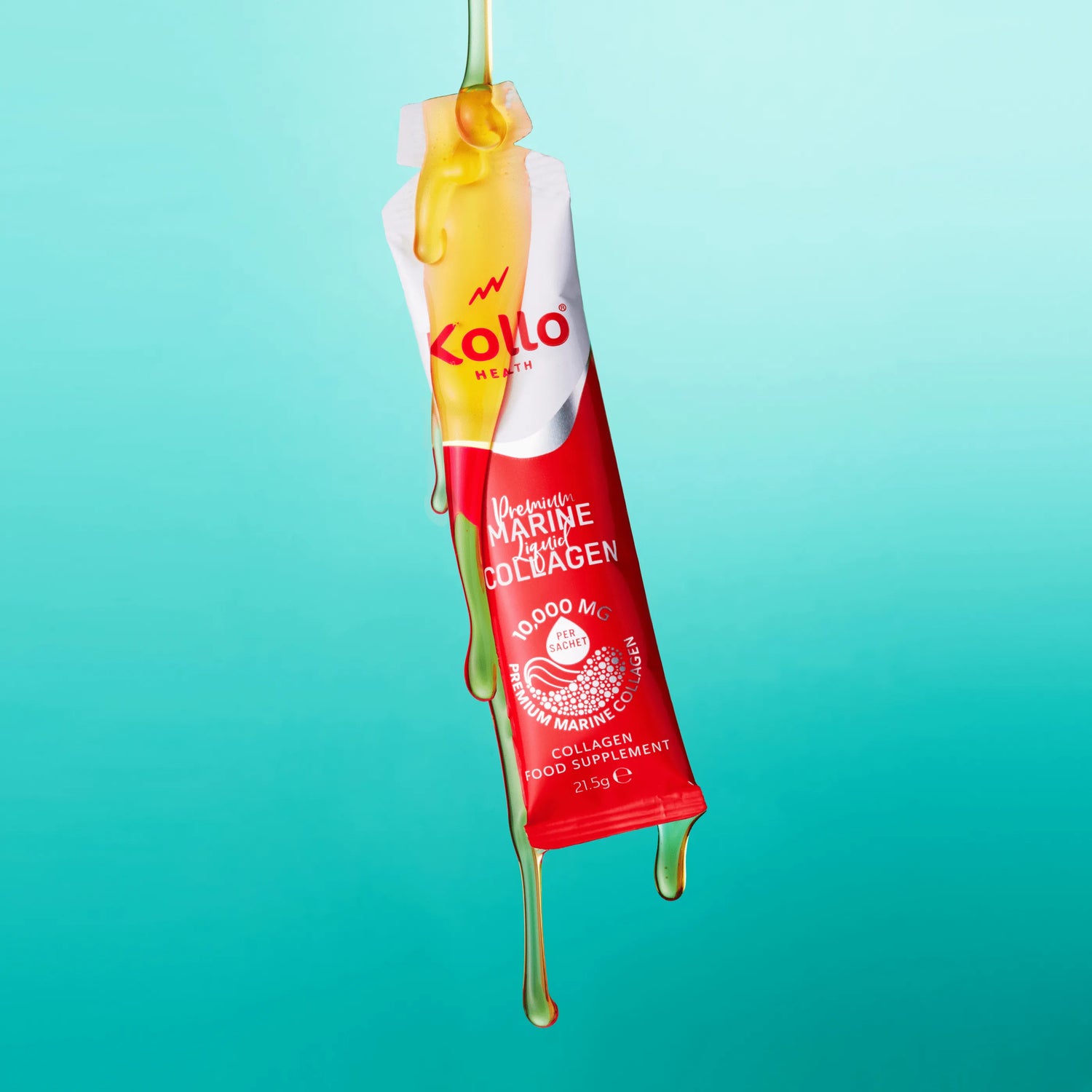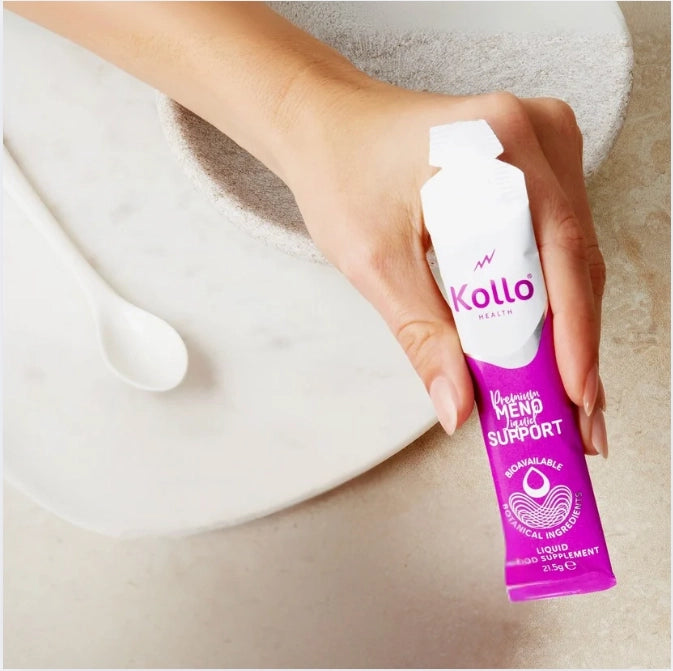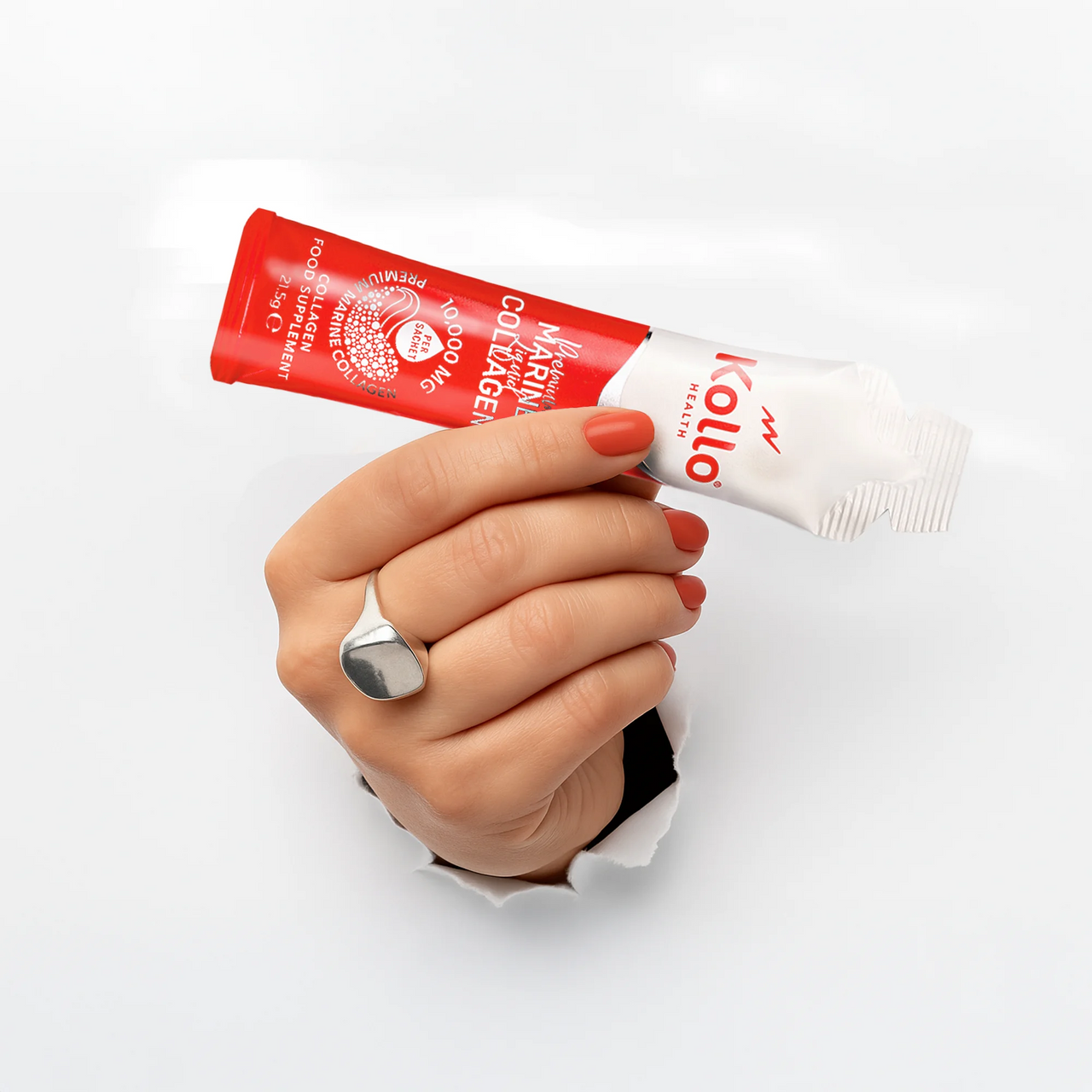So you've decided to add Kollo Health’s marine collagen 10000mg supplements to your routine, but you're curious how to store them properly. Maybe you live in a hotter climate and don’t want them to go bad if left out too long, or you’d like to mix them in your favourite hot beverage (or both!).
You’ve done your research on liquid collagen vs powder, decided on the liquid form, and spent the money to buy it. You don’t want to damage it, so now you’re curious. The answer is straightforward, though. Everyday heat won't harm collagen, but exposure to high temperatures for an extended period of time can damage collagen proteins.
Understanding collagen's resilience is crucial to preserving the quality and efficacy of your collagen supplements. Still, you don’t have to be a scientist to keep your product working optimally!
Here, we have everything you need to know about collagen's resilience and how to maximise its benefits in warm climates. Follow along as we explore how temperature variations can influence supplement quality.
Why is Collagen Important to Your Body
Collagen comprises approximately 30% of the body’s protein. It serves as a crucial building block for skin, muscles, ligaments, tendons, bones, hair, and connective tissues. Additionally, it plays a role in organs, blood vessels, and intestinal lining.
But collagen begins to break down as you age, and your body doesn't produce it anymore. Of course, the older you get, the more collagen you need. So now you’re considering adding a collagen supplement. But what exactly does it do?
Most people think of collagen for hair, skin, and nails. But it does so much more than just reducing the signs of physical ageing. Alongside enhancing skin, hair, and nails, you can experience:
- Enhanced joint health and comfort
- Improved bone density
- Increased muscle mass
- Better gut comfort
- Enhanced arterial health
Not every collagen supplement has what you need, though. Finding a quality collagen supplement like Kollo Health’s liquid marine collagen is crucial.
What makes our collagen different? It has Naticol marine collagen peptides, which are known for high purity, integrity, and outstanding sustainability. You will also find Vitamin C, B1, B5, B6, B12, and L-lysine in our collagen.
These are just a glimpse of Kollo Health’s wellness advantages. Given all these nutrients and benefits, it's natural for people to worry about preserving its effectiveness.
What Happens When Collagen is Heated?

We already mentioned that everyday heat won’t harm your marine collagen supplements. But what happens when you add collagen to hot beverages like coffee or tea?
If the structure of a collagen supplement is altered, it could make it less effective, but not by much. Collagen supplements have already had some altering during extraction through a process called denaturation. This process uses extremely high heat for extraction, which changes the structure of the proteins that make up collagen.
However, this initial denaturation does not significantly diminish the potency of the peptides. Still, subjecting the proteins to extremely high temperatures again could lead to further degradation.
Does Heat Impact Collagen Supplements?

We need to start with a mini-science lesson to understand what denaturation does and how heat impacts collagen supplements.
Collagen peptides are derived using acid or alkaline solutions. They are soaked in heated water at 190ºF (88ºC) to extract the most significant amount of peptides. This process slightly diminishes the potency of the collagen by a minuscule amount — not enough to impact its effectiveness.
However, subjecting proteins to higher temperatures, like leaving your product in a hot car for an extended period, could result in further degradation. Keep that in mind when storing or using your collagen. You don't want to make a mistake and potentially render them ineffective. Avoid extreme temperatures to maintain their effectiveness.
At What Temperature Does Collagen Break Down?
Collagen begins to break down at temperatures higher than its natural body temperature, around 98.6°F (37°C). However, the exact temperature at which collagen denaturizes can vary depending on factors such as collagen type and source.
But what do we mean when we talk about higher temperatures? One piece of research found that degradation happens at around 302ºF or 150ºC. Your collagen should be fine if you stay below these temperatures.
Can You Add Collagen to Coffee and Hot Drinks?
The potential benefits of taking a collagen supplement mean more people want to add this to their morning regime. That routine sometimes includes drinking hot coffee or drinks in the morning. Wouldn't it be great if you could add your collagen supplement to your morning beverage? Well, you can!
Most people brew their daily cuppa at temperatures of 195–205ºF (90–96ºC). Adding collagen to coffee or tea at those ranges will be fine. So, if you’re a coffee lover asking, “Can you put collagen in coffee?” The answer is yes! Mixing it with your beloved drink is an excellent way to ensure you get what your body needs to help keep your skin healthy.
Best Ways to Store Collagen in Hot Climates
In hot climates, proper storage of collagen is essential to maintain its effectiveness. Liquid collagen can typically be stored at room temperature. However, it's best to store it in a cool, dry place, away from direct sunlight, to maintain its quality and efficacy over time.
Keep it away from any heat source, such as heaters, stoves or ovens. Avoid direct sunlight as well. Consider placing them in a pantry or cupboard to reduce exposure to humidity. Avoid storing collagen in areas prone to temperature fluctuations, like near windows or doors.
Refrigeration isn't necessary for storing our liquid collagen, though some people prefer its taste when chilled. Once opened, any remaining collagen should be refrigerated if not consumed immediately. Make sure to seal it tightly to prevent moisture absorption.
Following these suggestions will help preserve the quality and effectiveness of collagen supplements. Proper storage ensures that you experience all the benefits and potency of your nutraceutical.
Conclusion
Curiosity about the effects of heat on collagen supplements is understandable. Keep in mind that everyday heat won't harm collagen, so most indoor storage is fine. Also, feel free to mix it into your hot beverage. Just be aware of prolonged exposure to high temperatures that can damage the supplement.
Understanding collagen's resilience and taking precautions can indeed maximise its benefits. Given collagen's significant role in enhancing health, safeguarding its effectiveness is crucial.
Whether adding it to a hot beverage or considering storage, avoid scorching areas and long-term exposure to heat. Handling collagen supplements with care is essential to ensure they continue to support your health.







